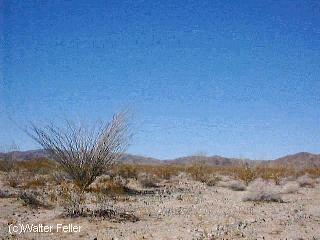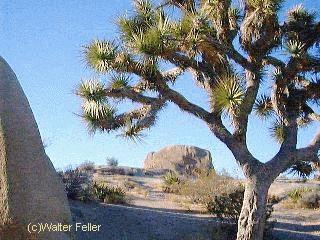Ecosystems
Two deserts, two large ecosystems whose characteristics are determined primarily by elevation, come together at Joshua Tree National Park. Few areas more vividly illustrate the contrast between the high and low desert. Below 3,000 feet, the Colorado Desert, occupying the eastern half of the park, is dominated by the abundant creosote bush. Adding interest to this arid land are small stands of spidery ocotillo and jumping cholla cactus. The higher, moister, and slightly cooler Mojave Desert is the special habitat of the undisciplined-looking Joshua tree, extensive stands of which occur throughout the western half of the park. Standing like islands in a desolate sea, the oases provide dramatic contrast to their surroundings. Five fan palm oases dot the park, indicating those few areas where water occurs naturally at or near the surface to meet the requirements of these stately trees. Oases once serving earlier desert visitors now abound in wildlife.Previous - Next
The Joshua Tree Ecosystem

Colorado Desert

Mojave Desert